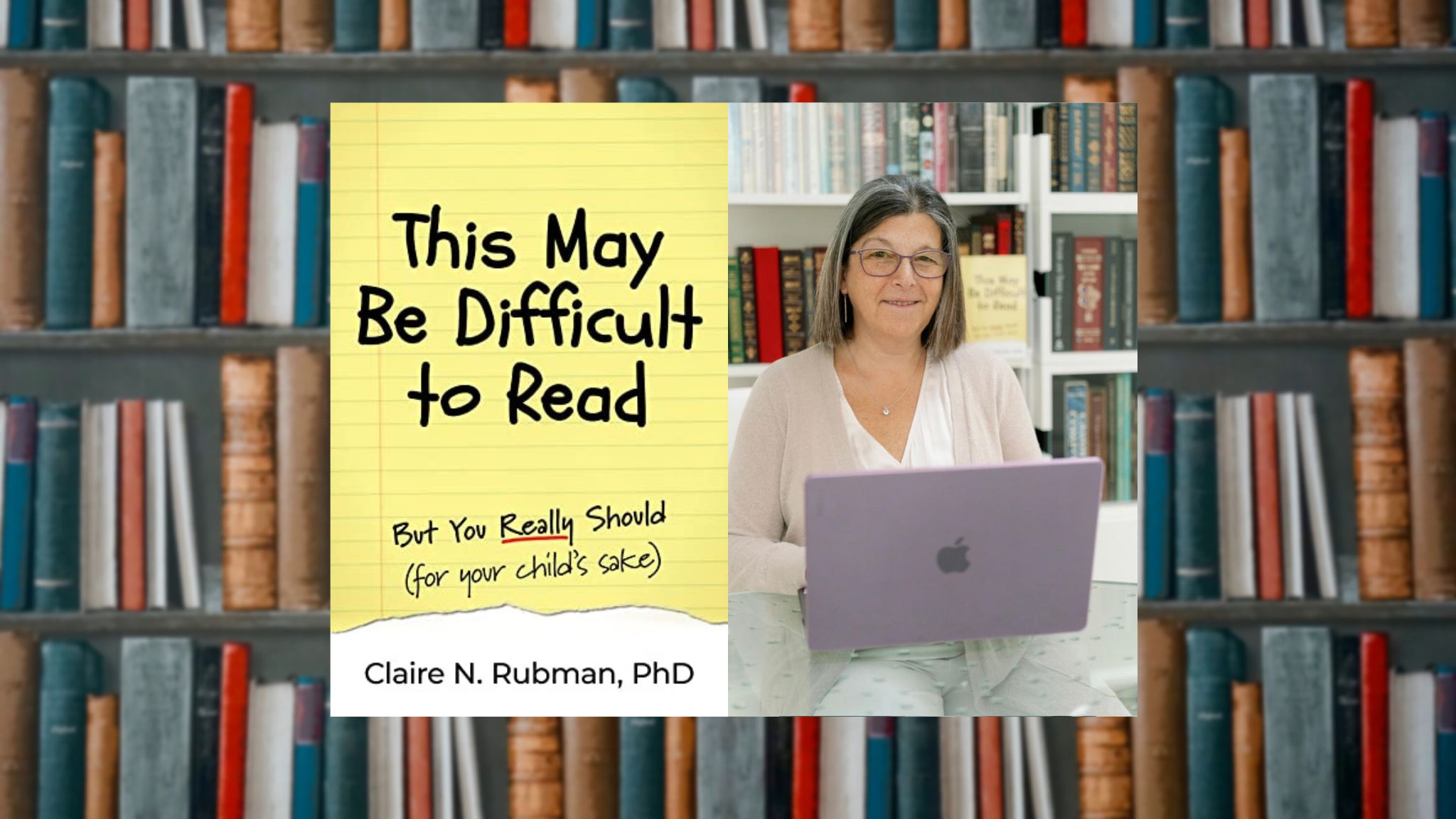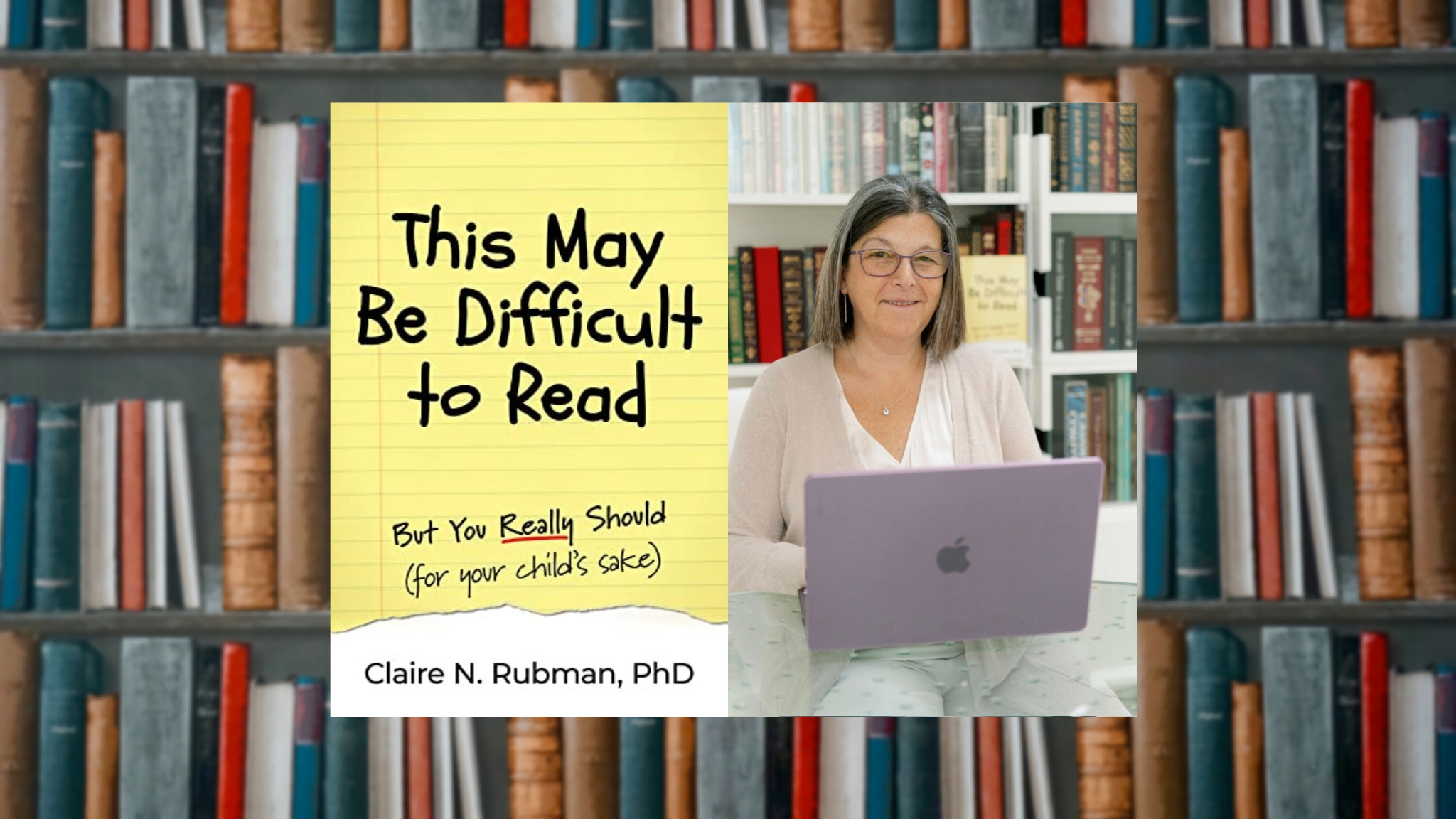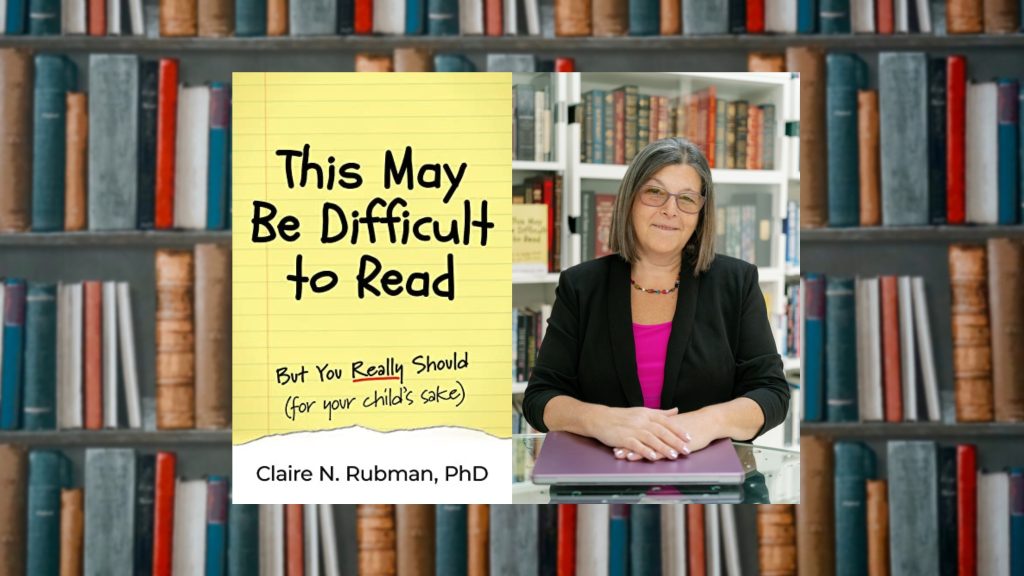
This May Be Difficult to Read by Claire Rubman
More than 42 million Americans are functionally illiterate; they can’t follow the directions on a can of soup. Millions of students leave grade school with insufficient reading skills to adequately do their work and learn. How and why did this happen? And what does this say about the way we are educating our children?
Claire Rubman, a cognitive development psychologist and college professor, attempts to address those issues and provide solutions in her new book, This May Be Difficult to Read. She provided more insight in this recent Q&A with BookTrib.
Q: Why does this condition exist in the first place?
A: Look, parents want the best for their children. As their child’s first teacher, they teach them letters and sounds. But for one in five college students and 15 million high schoolers, their reading skills are inadequate. That’s awful! When we teach children to say the words out loud without focusing on meaning, we sell our children short.
We can fix that. Parents don’t necessarily see these reading comprehension inadequacies until their children begin to fail. But there is so much that we can do to help parents to prevent this failure chain. This May Be Difficult to Read offers parents specific strategies and fun activities to promote successful reading comprehension.
Q: Do parents have the necessary time and tools to do their parts from home in terms of supporting their childrens’ reading growth?
A: Especially today, time is of the essence for parents. You work 40+ hours per week, you cook, you clean, you do laundry and somewhere in your frenetic schedule, you find time to be your child’s first teacher.
We have the psychological research and tools that can help all parents to optimize their interactions with their children and maximize their learning.
Q: What are some myths about what works or doesn’t work when teaching reading to children?
A: Let me turn that around and ask you:
- Smaller words are easier to read than bigger words. Fact or myth?
- Is it cheating if your child looks at the pictures to figure out what the words say? Fact or myth?
- Earlier is better when it comes to learning to read. Fact or myth?
Q: Why did you write this book and what advice can you offer parents and others about improving childrens’ reading skills at a formative age?
A: As a college professor, I have seen what failure looks like as some of my students try, but fail, to read and comprehend their textbooks. I see their comprehension failures as they try to apply the work that we are learning in the real world. I wrote this book because we have decades of research that can help parents. What is the point of doing all this research if we don’t share it? So here it is.
This May Be Difficult to Read brings this research to you with practical, easy-to-implement ideas, such as:
- Turn your home into an engaging ecosystem where learning is a byproduct of fun.
- Create a “need to read” in your home so that reading becomes as natural as speaking in your daily interactions.
Learn to see through your child’s eyes and read as your child reads. The book uses 15 different research studies to allow a parent to experience the difficulties a child may encounter in the reading process. Parents can try these research experiments in their own home.
 About Claire Rubman:
About Claire Rubman:
Dr. Claire N. Rubman is a cognitive, developmental psychologist who has taught in the classroom for over 30 years and raised three of her own children. She has seen the struggle first-hand. She earned her PhD from Stony Brook University in 1994 and has been teaching and raising children ever since. She has been teaching at Suffolk County Community College in New York for over 20 years. Aside from work in the classroom, she has given lectures around the country, published magazine articles, served as an “Ask the Expert” for Texas Family Magazine, edited books for McGraw-Hill, worked as a consultant for Relay/GSE, and presented workshops and lectures for the “Distinguished Speaker Series” and the Child Care Councils of Suffolk and Nassau County, NY. Publications, lectures, and workshop topics include: “Pixels vs Play: A Cognitive Developmental Exploration of Play,” “Neuropsychology and Cognition in the Classroom,” “Reading: The Magic Formula,” and “Reading It All Wrong.”

Publish Date: 11/18/2022
Genre: Education, Nonfiction
Author: Claire Rubman
Page Count: 250 pages
ISBN: 9798987086117

